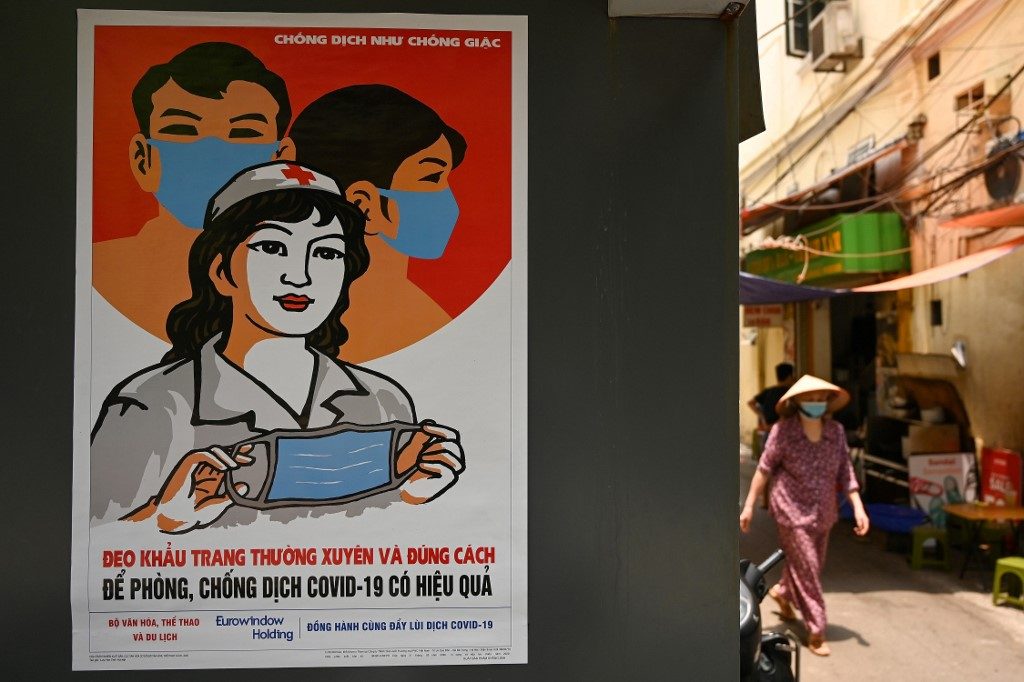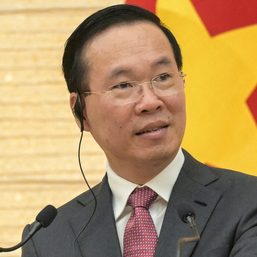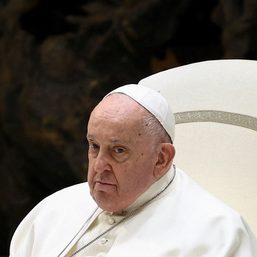SUMMARY
This is AI generated summarization, which may have errors. For context, always refer to the full article.

A strong response to the coronavirus pandemic, surging exports, and healthy public spending have helped Vietnam buck a global recession in 2020 and fast-track its recovery, with analysts predicting it will likely enjoy one of the highest growth rates in the world.
But the pain is not over for some sectors with containment measures and border disruptions hammering the country’s tourism industry, and leaving the once-booming aviation sector limping.
While many countries have suffered from high infection and mortality rates, Vietnam has recorded fewer than 1,500 coronavirus cases and 35 deaths thanks to mass quarantines, expansive contact tracing, and strict controls on movement, allowing factories to largely stay open and people to swiftly get back to work.
“The serious lockdown lasted for less than 3 months, so domestic activity was quickly back to normal by June,” Nguyen Xuan Thanh, a public policy lecturer at Fulbright University Vietnam, told Agence France-Presse (AFP).
While many Western countries were imploring citizens to stay home midyear, Vietnamese people were able to flock to scenic beaches as the government tried to give the domestic tourism industry a much-needed shot in the arm.
There were grave fears for Vietnam’s export-reliant economy as demand for clothing, footwear, and smartphones slumped in some of its biggest markets including the European Union, Japan, and South Korea.
“But it turned out that exports still helped promote growth this year,” Thanh said. “That’s because Vietnam has a very diversified export market – it’s not dependent on any single export destination.”
Shipments to China grew more than 15% on-year in the first 9 months, according to the Vietnam General Customs Administration.
Demand for many of the items made in Vietnam – such as home electronics, office furniture, computers, and televisions – soared during the pandemic as people were forced to stay home during lockdowns.
That has meant that while it will fall short of its target of 6.8% growth this year, the economy is expected to expand 2.4%, which the International Monetary Fund (IMF) said would be among the best in the world.
The IMF has forecast a global contraction of 4.4%.
‘Tourism has died’
Observers said Vietnam had also benefited from the United States-China trade war as companies such as Apple look to shift their supply chains to avoid tariffs. The country’s exports to the United States rose by about a quarter to $54.7 billion in the first 9 months of the year.
However, the absence of foreign travelers has dealt a severe blow to the tourism sector.
The UNESCO-recognized ancient imperial city of Hue – which is popular with foreign visitors – now resembles a ghost town, with Thua Thien Hue province’s tourism department saying 80% of hotels were closed while 8,000 people had lost their jobs.
“We are suffering heavily from the pandemic,” the deputy head of the provincial tourism department, Nguyen Van Phuc, told AFP.
It is a similarly grim story in Hanoi, where hotel owner Nguyen Dinh Toi said simply that “tourism has died.”
“We survived the SARS (Severe Acute Respiratory Syndrome) epidemic, the financial storm of 2009-2010…but now the situation is unbelievable,” said Toi, who runs hotels in Hanoi’s old quarter, Halong Bay and Sapa.
Still, Vietnam’s economy is less exposed than other tourism-dependent countries in the region such as Thailand, where the IMF predicts the economy to slump by 7.1% this year.
The government has also helped cushion the economic blow by pouring money into infrastructure projects such as roads and bridges, said Thanh.
“This creates additional demand, compensating for COVID and a decline in household consumption, and it also creates jobs,” he said.
Public investment in the first 11 months of 2020 rose 34%, the highest in 9 years, the government said.
Vietnam’s relative triumph this year could lead to benefits in years to come, said Adam McCarty, chief economist at Hanoi-based Mekong Economics.
The way the coronavirus has been handled has “almost made Vietnam famous around the world,” he said, adding it is signaling to big foreign companies overseas that they should have another look at Vietnam. – Rappler.com
Add a comment
How does this make you feel?


![[Time Trowel] Evolution and the sneakiness of COVID](https://www.rappler.com/tachyon/2024/02/tl-evolution-covid.jpg?resize=257%2C257&crop=455px%2C0px%2C1080px%2C1080px)







There are no comments yet. Add your comment to start the conversation.